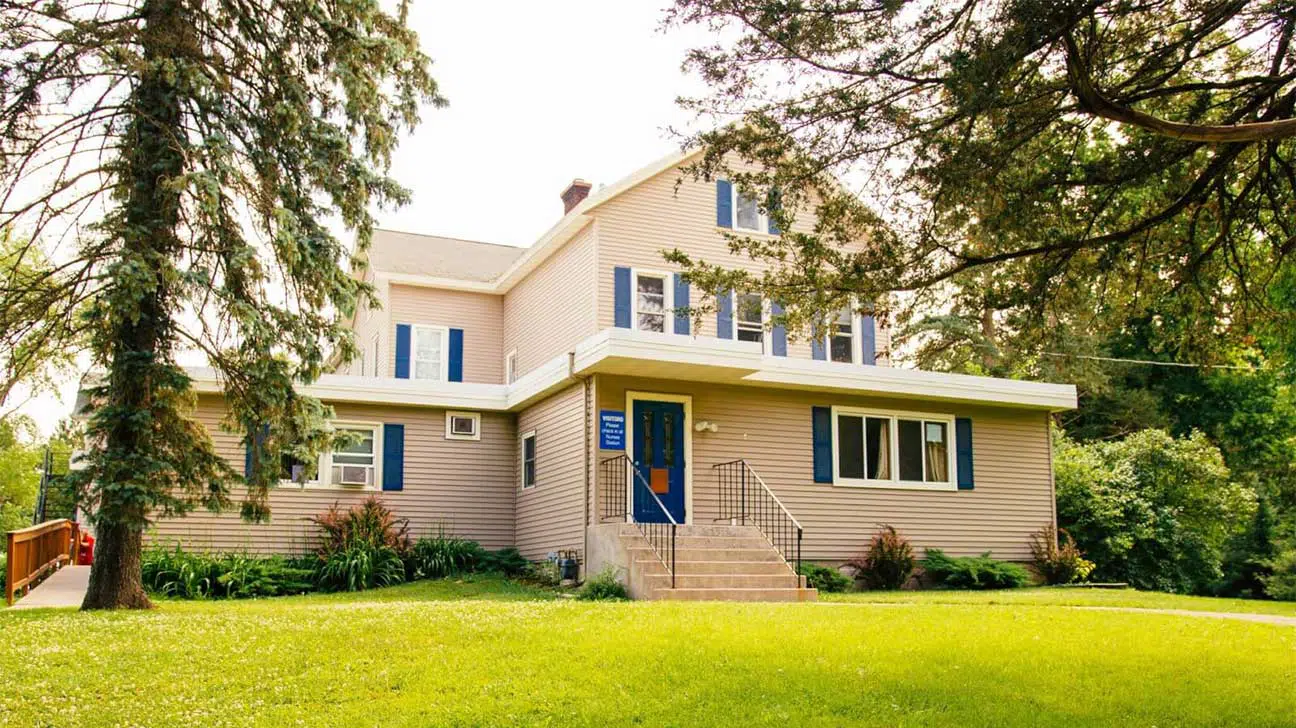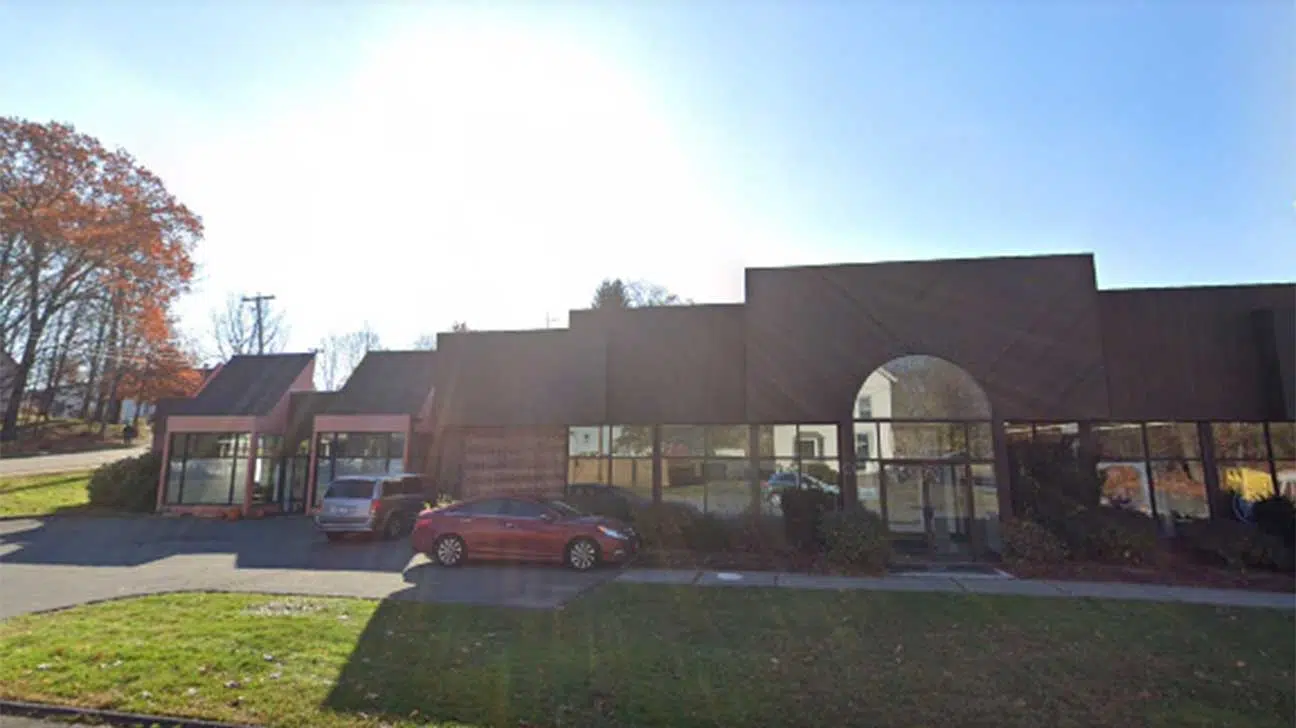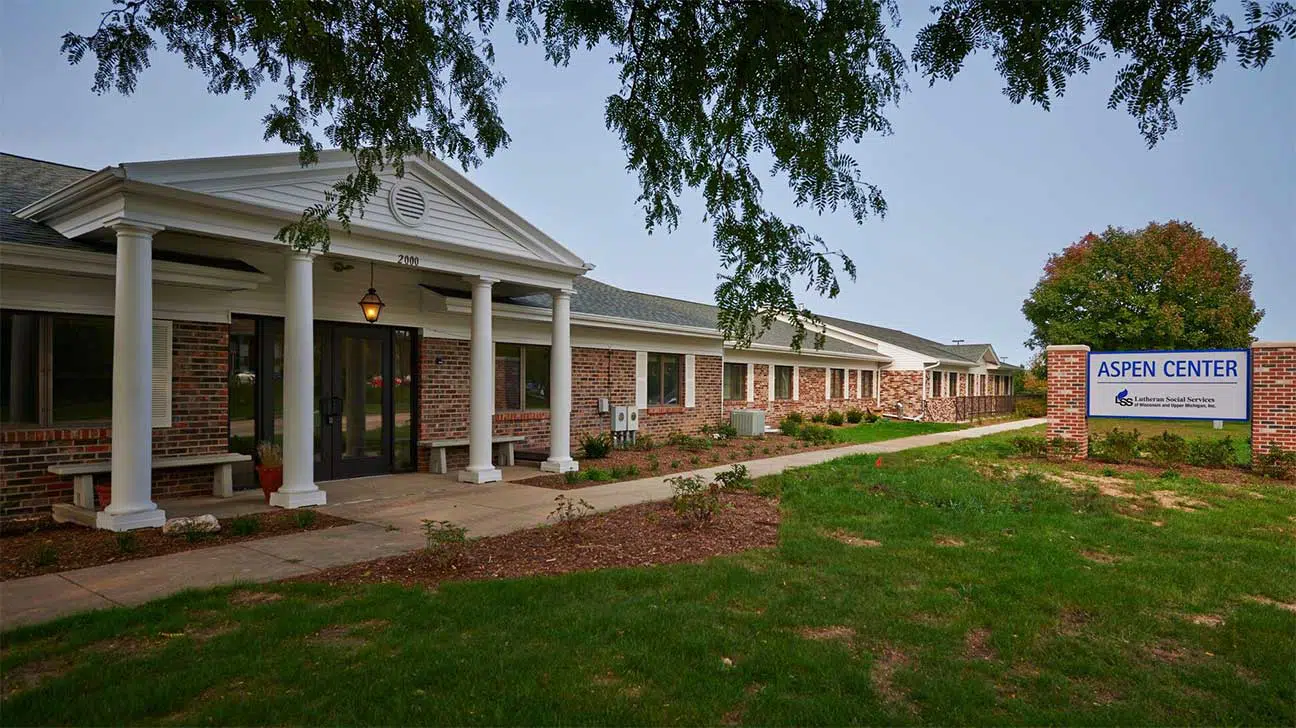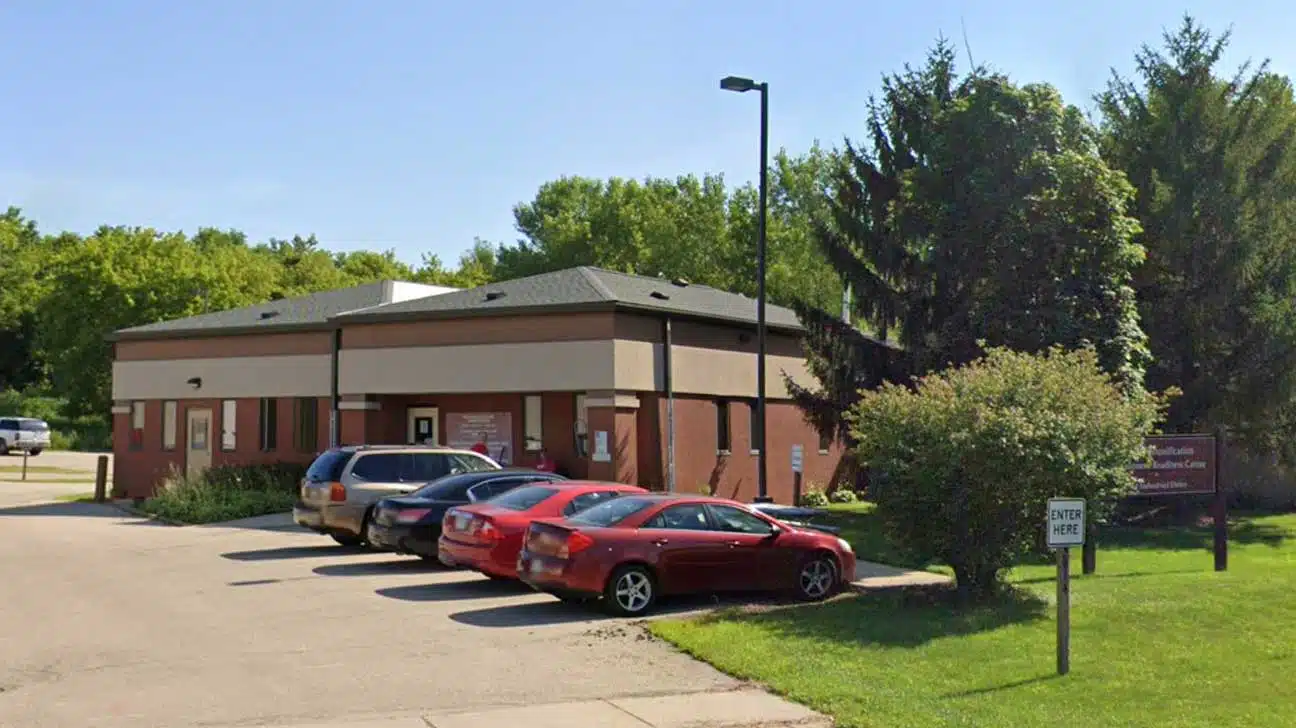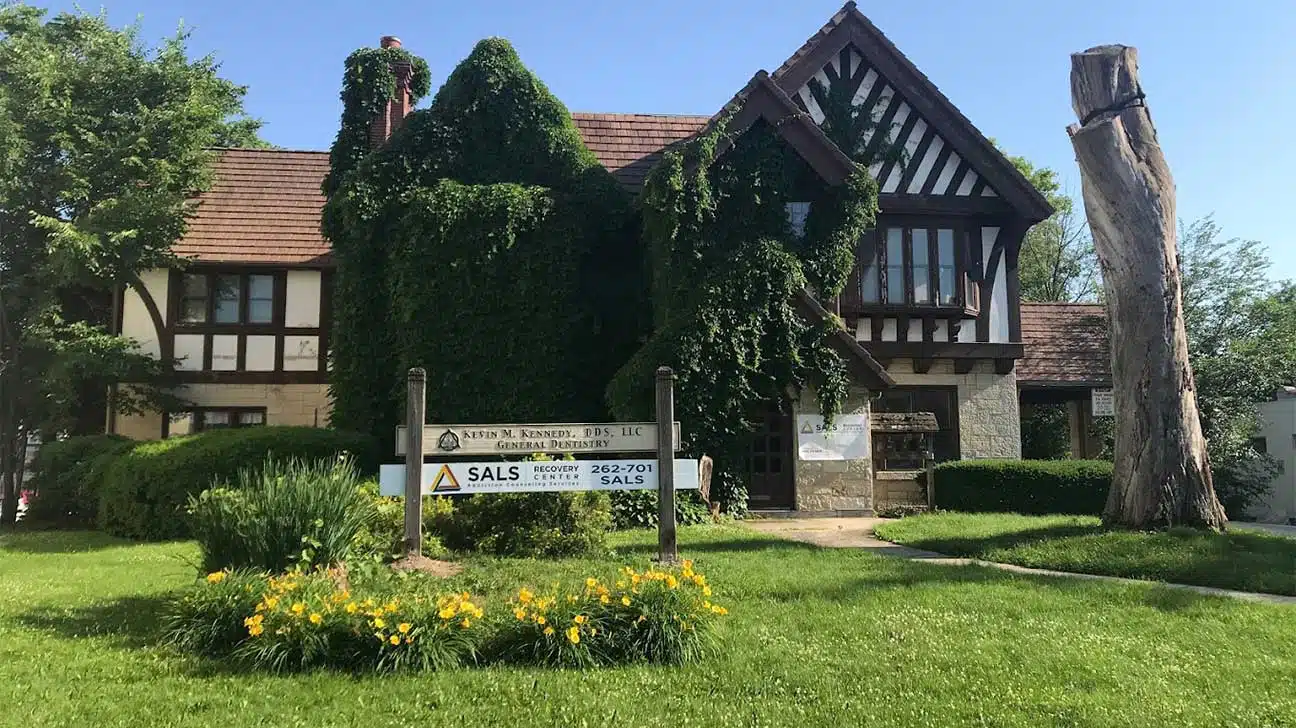
Many people in Wisconsin live with both substance abuse and mental health disorders, which is known as a dual diagnosis.
Dual diagnosis treatment centers in Wisconsin can treat opioid addiction, drug addiction, alcohol abuse, and more alongside mental health issues with effective mental health services.
Commonly diagnosed and treated disorders in Wisconsin include eating disorders, bipolar disorder, depression, anxiety disorders, and personality disorders.
List Of Dual Diagnosis Treatment Centers In Wisconsin
To help you find the best dual diagnosis addiction treatment programs in Wisconsin, our team has selected the following rehab centers based on marks of quality care.
Qualifications may include:
- certifications may include
- accreditations
- high Google ratings
- positive testimonials from past clients
1. Burkwood Treatment Center, Hudson, Wisconsin
This drug rehab center in Hudson, WI, features Commission on Accreditation of Rehabilitation Facilities (CARF) accreditation and a 4-star Google rating.
Here, clients can get treatment for addiction and co-occurring mental health disorders.
Levels of care include:
- residential treatment
- outpatient program (OP)
- continuing care
Location and contact information:
615 Old Mill Rd.
Hudson, WI 54016
(833) 782-1782
2. CleanSlate, Greenfield, Wisconsin
This drug and alcohol rehab facility in Greenfield, WI, can treat addiction and co-occurring mental health issues through its residential treatment program.
CleanState is backed by CARF accreditation and a 4.4-star Google rating.
Location and contact information:
4848 S. 76th St.
Ste. #210
Greenfield, WI 53220
(414) 847-7080
3. LSS Aspen Center, Waukesha, Wisconsin
LSS provides services for community health, mental health care, housing services, family programs, and substance abuse treatment in Waukesha, WI.
They offer a residential treatment center for men and women, which includes co-occurring disorder groups, gender-specific groups, individual counseling services, and more.
This facility is backed by CARF accreditation and a 3.7-star Google rating.
Location and contact information:
2000 W. Bluemound Rd.
Waukesha, WI 53186
(262) 330-8770
4. Pathways To A Better Life, Multiple Locations
This recovery center offers residential dual diagnosis treatment at their facilities in Kiel and Waldo, WI. The average length of stay is 60 days.
A few of the treatment approaches used in dual diagnosis treatment here include individualized treatment plans, family sessions, and one-on-one therapy.
Pathways to a Better Life features positive testimonials from past clients.
Location and contact information:
530 State Rd. 67
Kiel, WI 53042
(920) 894-1374
5. Roots Recovery, Milwaukee, Wisconsin
Roots Recovery is an addiction treatment program in Milwaukee, WI. Treatment services include day treatment, OP, IOP, and sober living services.
Roots Recovery provides a dual diagnosis program equipped with a range of therapies, individualized treatment plans, and medication assistance if needed.
This drug abuse and mental health condition treatment program features:
- National Association of Addiction Treatment Providers (NAATP) membership
- CARF accreditation
- LegitScript certification
Location and contact information:
1681 N. Prospect Ave.
Milwaukee, WI 53202
(844) 738-6933
6. Tellurian, Madison, Wisconsin
Tellurian provides a full continuum of care, including detoxification, residential and inpatient treatment, day treatment, outpatient treatment, and medication-assisted treatment (MAT).
This drug treatment center in Madison, WI, specializes in substance use disorders with an emphasis on co-occurring mental health disorders in their residential treatment program.
Trusted features of this behavioral health treatment facility include LegitScript certification and positive client testimonials.
Location and contact information:
300 Femrite Dr.
Madison, WI 53716
(608) 222-7311
7. WisHope Recovery (WHR), Waukesha, Wisconsin
This addiction treatment center offers dual diagnosis treatment programs in Waukesha and Milwaukee. They offer residential treatment, standard OP, and MAT.
Here, dual diagnosis treatment for substance abuse and mental illness involves:
- cognitive behavioral therapy (CBT)
- dialectical behavior therapy (DBT)
- motivational interviewing (MI)
- trauma-informed care
- individual, family, and group therapy
WHR features marks of quality such as:
- certification from LegitScript
- accreditation from the Joint Commission
- NAATP membership
Location and contact information:
223 Wisconsin Ave.
Unit A
Waukesha, WI 53186
(262) 701-7257
Treatment Services Available At Dual Diagnosis Recovery Centers In Wisconsin
The following behavioral health services are commonly found in dual diagnosis treatment programs in Wisconsin.
Treatment options may include:
- short-term residential treatment
- standard outpatient treatment for Wisconsin adults
- medically monitored detox
- case management and wellness services
- holistic therapies
- 12-step programs for opioid or alcohol addiction
- group, individual, and family therapy
- relapse prevention
- support groups for adolescents
- medication management
- sober living or transitional living homes
- aftercare
How Common Is Dual Diagnosis Treatment In Wisconsin?
There are many rehabilitation centers in the state of Wisconsin that will offer dual diagnosis treatment options.
Unfortunately, there are many people in Wisconsin and throughout the country that do not get treatment for both mental health and substance use disorders (SUD).
Without co-occurring disorder care, many people will be stuck in a cycle of relapse because the root cause of their addiction is not being addressed in treatment.
Based on data published by the National Institute of Health (NIH), only 9.1% of Americans who need it receive both mental health care and SUD treatment.
Choosing A Wisconsin Dual Diagnosis Rehab Program
There are many dual diagnosis treatment facilities for you or your loved one to choose from in Wisconsin.
To help you get started, we’ve compiled a list of helpful selection tips:
- First, find a rehab center that specializes in dual diagnosis treatment, not just a facility that offers counseling or mental health support.
- Next, ensure that you can get treatment for the addiction and mental illness you’re overcoming at that treatment center.
- Then, determine the level of care you require, such as standard OP, an intensive outpatient program (IOP), partial hospitalization, or residential treatment.
- Finally, survey additional features of the program to find the right fit for your recovery goals, such as holistic therapy, MAT, behavioral therapy, and support groups.
FAQs About Dual Diagnosis Treatment Centers In Wisconsin
The commonly asked questions below may help you or your loved ones find a dual diagnosis recovery center that works for you.
Will Health Insurance Plans Cover Dual Diagnosis Treatment In Wisconsin?
Yes, dual diagnosis care may be covered by private insurance, Medicare, TRICARE military insurance, and Wisconsin Medicaid for addiction treatment.
What Are The Most Common Co-Occurring Disorders In Wisconsin?
The most common co-occurring disorders treated at Wisconsin dual diagnosis rehab centers are bipolar disorder, depression, anxiety, and behavioral disorders co-occurring with addiction.
Do Luxury Rehab Facilities In Wisconsin Provide Dual Diagnosis Treatment?
Yes, luxury rehab centers in Wisconsin will typically offer holistic therapies as well as evidence-based treatment options for people with dual diagnoses.
You can contact a program’s helpline to learn further details.
Find Substance Abuse Treatment Today
Finding a dual diagnosis recovery center can be stressful. Reach out to AddictionResource.net today and take the first step on the journey to long-term recovery.
Updated on April 7, 2023
Addiction Resource aims to provide only the most current, accurate information in regards to addiction and addiction treatment, which means we only reference the most credible sources available.
These include peer-reviewed journals, government entities and academic institutions, and leaders in addiction healthcare and advocacy. Learn more about how we safeguard our content by viewing our editorial policy.
- Substance Abuse and Mental Health Services Administration — Mental Health and Substance Use Disorders
https://www.samhsa.gov/find-help/disorders

